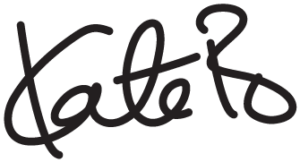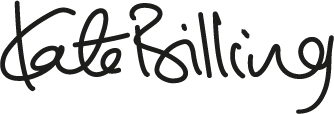"Self-care is not selfish. You cannot serve from an empty vessel"
Eleanor Brown
Back in May I wrote to you with news from the Deloitte Wellbeing report that Executive Wellbeing is tanking with an alarming 70% of executives seriously considering leaving their current roles due to a lack of support for their wellbeing.
In that same month, a piece appeared in the Harvard Business Review entitled ‘More than 50% of Managers Feel Burned Out’ written by two of Microsoft’s People Team about the findings of research into the experience of their own people.
I shared a summary of the HBR article on LinkedIn with the provocation that a three-day weekend is no cure for leadership burnout. It’s definitely part of a prevention plan but there needs to be much, much more. Burnout recovery is a complex and personal thing dependent on many factors including the level of burnout the person has reached (there are TWELVE!) hence much of the public conversation is about causes and prevention.
That LinkedIn post got A LOT of great comments and conversation going including contributions from New Zealand’s foremost researcher in the burnout space Prof. Jarrod Haar. I’ve subsequently been in direct contact with Jarrod about his research and look forward to sharing insights with you in future updates and to integrating it into some of our new leadership development programmes and retreats.
Whether you’re actually burned out (Jarrod tells me we’re very bad judges of that) or somewhere else on the continuum from tired, to overwhelmed, to exhausted, there are simple yet significant things that you can take personal responsibility for to lower your risk profile and improve your wellbeing baseline by developing what I call a ‘Working Well Culture’ – whether you lead others or just lead your Self.
The FOUR FOUNDATIONS of ‘Working Well’ are:
1. Prioritise Relationships: Jarrod tells me that loneliness is one of the top three contributing factors to burnout in New Zealand. So what can you do about it?
- Make time for the people who matter most on your Home Team
- Schedule dedicated quality time away from all screens and devices (including your Apple watch or other connected wearables) and be fully present
- Delegate, develop and empower your team to handle things in your absence; and
- Nurture personal connections with your team and peers for healthier work relationships.
2. Embrace Rest and Renewal: Not taking regular and sufficient quality time away from work can be a challenge but creating space to genuinely unplug from ‘the grind’ and connect with the places and people who matter is a critical part of nurturing your wellbeing:
- Plan your annual leave (ideally 6-12 months in advance) and encourage others to do the same
- Ensure a balance of different kinds of breaks rather than trying to make them be all things to all people (e.g. I have R&R – rest and renewal, F&F – friends and family, and A&E – adventure and education)
- Incorporate regular minibreaks throughout the day to relax your eyes, mind and body. You’ll be amazed what 10-15 minutes will do for your energy and focus; and
- Eat your meals away from screens (at work and at home) especially incorporating a short stroll outside afterwards if you can.
3. Establish Healthy Boundaries: Another one of the top contributors to burnout for Kiwis is using technology to connect and work ‘outside hours’. We are rapidly letting work creep into all the time and space in our lives. To begin to change this:
- Set clear start and end times for daily ‘work windows’ and your use of technology
- Communicate these boundaries openly at home and at work
- Model healthy work-life balance boundaries to your team and peers; and
- Cultivate a culture of shared responsibility by helping others to set and stick to their own healthy boundaries.
4. Create Wellbeing Habits: We are the multitude of little things we do repeatedly through time. So what are your little things and how are they making you who you are and your life what it is? Habits are ‘hacks’ created by our brain to free up energy and attention. Although well intentioned, they’re not always locking in patterns that are good for us.
- Don’t change anything to start with. Instead keep a ‘habit journal’ for two weeks to raise your awareness about the things you’re doing every day on high repeat. This awareness makes it easy to find the places to begin creating small changes.
- Look for opportunities to build in more non-exercise movement and activity to your day. You don’t need to be going to the gym to engage in healthy movement!
- Establish a consistent sleep routine. This is a HUGE topic and you hear lots more from me on this health and wellbeing fundamental; and
- Incorporate mindfulness or meditation into you daily routine. You don’t need to DO anything, just start with 5 minutes of sitting in silence without distraction and notice more about your thoughts.
WARNING: Don’t try to do these all at once! Feel for the one or two that you think will begin to create space and positive change for you. Everyone’s context is different.
By taking these actions, we not only begin to improve our own wellbeing but also create a positive impact on the overall work culture for our teams and home culture of our families.
Learning to ‘Work Well’ is essential if we are to navigate the increasing complexity, speed of change, and demands of life, work and leadership in the 21st century.
Be safe and well.


